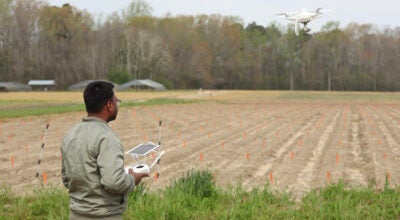Route 460 back on the table
Published 9:49 pm Wednesday, May 5, 2010
Six months after deciding the state could not afford to pay for a replacement to Route 460, officials have issued a new request for proposals for the project.
Virginia’s Commonwealth Transportation Board announced on Monday that it had closed the partnered procurement process that it began with private companies in 2008.
On Wednesday, the CTB initiated a new procurement search with stipulations apparently designed to make the project more palatable for the companies that might be interested in building the road.
The new procurement calls for the project to be funded solely through tolls, and it would give the developer control of the new road for an initial term of up to 75 years, with the potential to extend that control for up to 99 years.
In another bow to the commercial viability of the project, the CTB assumes in its new procurement that the 55-mile, four-lane, limited-access highway — which would stretch from Route 58 in Suffolk to I-295 in Prince George County — would initially have interchanges only at each end.
The issue of interchanges was a particularly sticky one for communities along the path of the proposed road during public hearings held in support of the earlier procurement. Elected leaders and economic development officials worried that a lack of exits would mean a loss of commerce in their communities.
The new procurement document states that the commonwealth would accept a “phased approach to develop the project and a minimum scope of work for the first phase.”
Planned interchanges at Route 258 in Isle of Wight, Route 616 in Southampton, Routes 602, 40 and 620 in Sussex and Routes 156 and 625 in Prince George could be added later, “as funding becomes available,” the document states.
Finally, the CTB’s agreement with a successful highway developer could include “support for the development of commercial facilities determined to be essential for the transportation of persons or goods,” a concession that could help the developer recoup the cost of the highway more quickly.
The original procurement process stalled last fall after all three teams that had submitted proposals wrote to the state to say that the highway could not be built without a substantial infusion of state cash, up to $1 billion. The Virginia Department of Transportation then put the process on a six-month hold in October.
With public funds still unavailable and no likely near-term improvement in the state’s ability to fund such a massive highway project, state officials took the plan off the table earlier this week.
But the need for both a reliable emergency evacuation route west out of Hampton Roads and a high-capacity highway capable of handling an increasing volume of freight moving into and out of Hampton Roads ports ensure that the project “remains a high priority for the commonwealth,” according to a VDOT history of the project.
“As such a new procurement was initiated on May 5, 2010 to include several new key assumptions that were not included in the earlier procurement with the goal of improving the economic viability of the project.”
Conceptual proposals for the new procurement are due in August, and an independent review panel could make a recommendation to the CTB as early as November. An agreement with a specific offeror would not be expected before September 2011.






